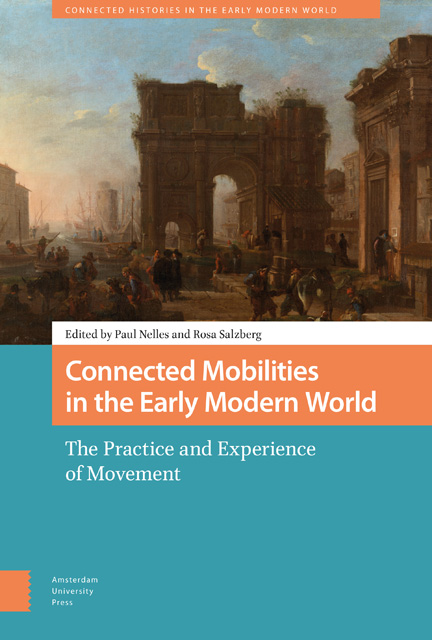3 - Travelling for Health: Medicine and Rural Mobility in Early Modern Spain
Published online by Cambridge University Press: 15 June 2023
Summary
Abstract
Healthcare and mobility were closely intertwined in the early modern world. While studies have focused primarily on exceptional forms of medical mobility, this chapter shifts the perspective by looking closely at routine local and regional journeys performed by patients of humble, mostly rural backgrounds in early modern Spain. Based on legal proceedings produced by the Spanish Inquisition and other courts, this chapter first elucidates the circumstances and motives that prompted people to leave their local communities for health reasons. It then explores the practical arrangements involved when embarking on such journeys, including travelling partners and accommodations. Gaining a more nuanced understanding of these frequent journeys for health helps overcome simplistic explanations such as the lack of local medical provision. The chapter offers a reassessment of how much geographic proximity really mattered when deciding on a treatment within the context of medical pluralism.
Keywords: history of medicine; rural healthcare; medical practitioners; walking; medical pluralism; history of the patient
Illness in early modern Europe frequently involved travel. While healthrelated travel was common in epidemics, movement also took place in unremarkable, everyday circumstances. The connection between mobility and medicine is certainly not a new area of scholarly interest. People, ideas, and objects related to medical matters travelled globally. The early modern Atlantic world has become an increasingly popular focus of research on how empires made materia medica mobile – in trade, encounters, and the circulation of associated knowledge. Within the European Republic of Letters, correspondence between university-trained physicians also resulted in the circulation of books, specimens, prescriptions, and tailor-made medicines. Concrete sites such as apothecary shops served as important hubs for the movement of information, and the domestic setting is now recognized as a place of production of medical recipes and a starting point for their circulation in manuscript and print. Furthermore, scholars have explored the fashionable visits to spas and thermal waters, health manuals for travelling, and professionally motivated travel, such as the peregrinatio academica of physicians or the movement of itinerant charlatans. As this rich scholarship has demonstrated, mobility needs to be understood as a central component of medicine in practice.
While there is an increasing interest to access the perspective of the users of early modern healthcare systems, studies have focused primarily on exceptional forms of medical mobility and on well-defined social groups.
- Type
- Chapter
- Information
- Connected Mobilities in the Early Modern WorldThe Practice and Experience of Movement, pp. 87 - 110Publisher: Amsterdam University PressPrint publication year: 2022

